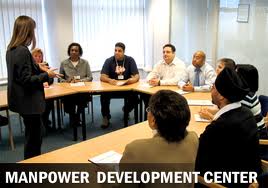The world is not perfect…there will always be ups and downs. You are not perfect…there is no such thing…so why do so many employees not feel part of their organization. It is because they are not engaged.
This is the final of the 3 part series that I shared with you on my blog about “Engaging Employees”.
Today’s blog will the need for better GRATITUDE.
Gratitude is feeling thankful ---GIFT
This week the subject is giving Thanks! GIFT - Gratitude is feeling thankful.
http://amgtconsulting.blogspot.com
How often are we appreciative of the many things that “go right” in our lives? Despite all our good intentions and actions, have you ever found yourself complaining about how you have been dealt the wrong hand. Somehow when things go wrong they multiply like rabbits. Our good intentions quickly sour and we are left with moaning and complaining. Being mean and creating issues rather than looking at the bright side of things. It’s human nature to want to be liked. To be appreciated for what we bring to the table. We are all hungry for genuine appreciation and thanks. We want others to know that we matter, that our efforts are making the world a better place. However how often is the reverse true.
Think back on the past year. It's been tough for many of us, for many reasons. The Recession, High Unemployment, Illness, Death of a loved one, Change of Job, Loss of Job… the list can go on & on. We can spend time on the negative side of our fortunes or we can rise above it and show our thanks. When was the last time that you showed your appreciation for the good work of your associates & that you are truly thankful for their efforts?
Let’s talk about Spring tune-up. In the next couple of months… how can you communicate your appreciation for the people that you work with? How can you give your associates the GIFT? How can you catch people doing the right thing? Take some time now to put together a list of people who you work with that you are sincerely grateful towards. Then create an action plan to communicate your thanks, with no hidden agenda.
One caveat is that your GIFT must be genuine!!! Your thanks/gratitude…your GIFT needs to be sincere. In the words of President John F. Kennedy over 50 years ago…” As we express our gratitude, we must never forget that the highest appreciation is not to utter words, but to live by them. “
Good selling & make it a great week!
Gratitude is feeling thankful ---GIFT
This week the subject is giving Thanks! GIFT - Gratitude is feeling thankful.
http://amgtconsulting.blogspot.com
How often are we appreciative of the many things that “go right” in our lives? Despite all our good intentions and actions, have you ever found yourself complaining about how you have been dealt the wrong hand. Somehow when things go wrong they multiply like rabbits. Our good intentions quickly sour and we are left with moaning and complaining. Being mean and creating issues rather than looking at the bright side of things. It’s human nature to want to be liked. To be appreciated for what we bring to the table. We are all hungry for genuine appreciation and thanks. We want others to know that we matter, that our efforts are making the world a better place. However how often is the reverse true.
Think back on the past year. It's been tough for many of us, for many reasons. The Recession, High Unemployment, Illness, Death of a loved one, Change of Job, Loss of Job… the list can go on & on. We can spend time on the negative side of our fortunes or we can rise above it and show our thanks. When was the last time that you showed your appreciation for the good work of your associates & that you are truly thankful for their efforts?
Let’s talk about Spring tune-up. In the next couple of months… how can you communicate your appreciation for the people that you work with? How can you give your associates the GIFT? How can you catch people doing the right thing? Take some time now to put together a list of people who you work with that you are sincerely grateful towards. Then create an action plan to communicate your thanks, with no hidden agenda.
One caveat is that your GIFT must be genuine!!! Your thanks/gratitude…your GIFT needs to be sincere. In the words of President John F. Kennedy over 50 years ago…” As we express our gratitude, we must never forget that the highest appreciation is not to utter words, but to live by them. “
Good selling & make it a great week!














